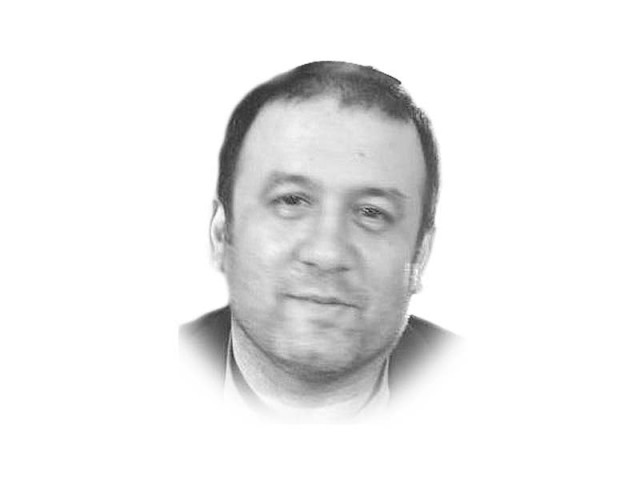Embracing elections and electoral reforms
The urban electorate in Pakistan seems to be divided on the elections issue

The writer works for the public sector. He moonlights as a journalist and is a graduate of the University of Warwick
The urban electorate in Pakistan seems to be divided on the elections issue. While one school never tires of shouting hoarse the benefits of democracy, the other cites the historical experience of Pakistani elections and how they keep throwing up the same faces perpetuating the stasis. The latter talks about the Western experience and how recurring elections condition both the people to choose wisely and the incumbents to act wisely. How can opinions be so divergent on an issue which is hardly unique to Pakistan? Perhaps, media can be held responsible for this cleavage in public opinion. People advising against the elections are not against the institution of elections. They are just not comfortable with an unchanging electoral framework to form the backdrop of elections.
Let’s dissect the competing narratives. That regular elections are the cornerstone of the democratic process allowing people to both elect and judge their rulers. This argument is premised on the world experience that elections at regular intervals enable people to gradually weed out the corrupt and incompetent. The purists cite modern Western democracies and their progress as examples of an unhindered political process, of repeatedly giving the power back to the people. Western Democracy took centuries to evolve tempered by a slew of variables, including regular elections. Other factors included functioning accountability mechanisms, independent/evolving election commissions, justice and education for all, governance and fair access to opportunity. Justice for all means the individuals are liberated from the need to rely on bribe or connections to get justice, it means equality of all before law. Education means greater awareness of one’s rights and a better understanding of who to vote for and why. The discourse on democracy is unequivocal on the impact of good governance and how it bears on participation and rational self-expression.
Experience from around the world shows that meaningful electoral reforms are invariably contentious and difficult to implement. Talk about Census or Delimitation and many politicians would flinch in terror given the likely impact on their electoral fortunes. The UNDP report on the 2013 elections in Pakistan argues for major electoral reforms in Pakistan citing the cases of Italy and New Zealand where whole scale reforms were instituted with great results and also countries such as Mexico and Kenya that went to great lengths to make their electoral commissions more independent. New Zealand is another case in point where reforms were embraced when the party that got the most votes ended up losing the election. The report declares, “Major democratic gains are made when political forces agree to make the electoral commission fully independent from political influence”. Canada is another case where the issue of incumbent governments blatantly skewing electoral rules in their favour led to one of the first independent electoral management bodies in 1920. It now operates under a single and powerful chief electoral officer with the authority to approve its own budget. Electoral reforms also contribute to mitigating violence arising from disputed electoral results. Case in point is Kenya, where 2007 elections saw dozens die due to dispute over results.
Lastly, Pakistan should not consider elections without holding the long overdue Census. Last was held in 1998 and the one due in 2008 was shunned on account of political expediency. The case of India, our neighbour, is extremely instructive. In India it is a decennial exercise and has been conducted 15 times, every 10 years since 1851 with the last conducted in 2011. The motto of census 2011 was ‘Our Census, Our future’. Census is critical in making the elections more representative and fair. Even the Supreme Court has asked the government to hold the census to make the elections meaningful. Census will have a direct bearing on Delimitation, meaning revisiting electoral boundaries and seats allocation which in turn will have profound ramifications for political parties. Time to draw an elaborate electoral reforms road map that aims at ensuring voter confidence in the electoral process, from the delimitation of constituencies to the announcement of final results. My next piece will delve deeper into individual electoral reforms needed by Pakistan.
Published in The Express Tribune, October 11th, 2016.
Like Opinion & Editorial on Facebook, follow @ETOpEd on Twitter to receive all updates on all our daily pieces.















COMMENTS
Comments are moderated and generally will be posted if they are on-topic and not abusive.
For more information, please see our Comments FAQ